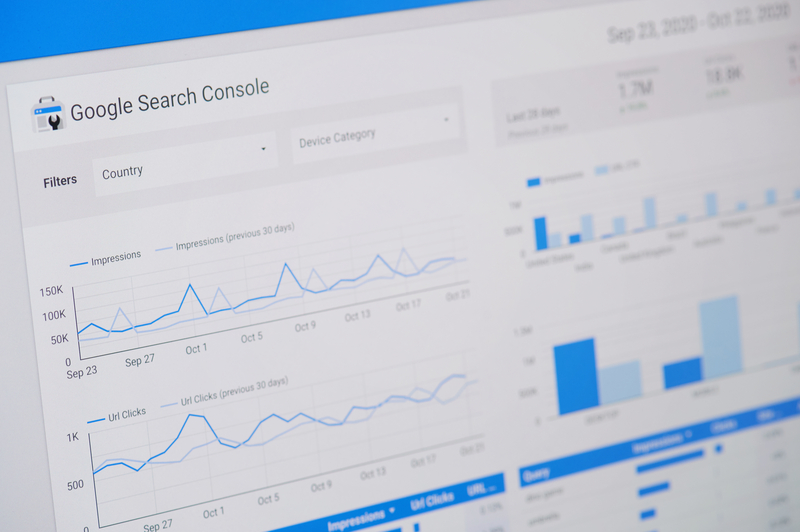You’ve hired an SEO expert, your content is relevant, the writing is solid – yet none of your content ranks on search engines. A disappointment many individuals face.
Before you give up, there are other aspects to look into, aspects that influence your ranking more than you think. Once you resolve these issues, you should start to see the results you want. Besides direct SEO content, here are 10 issues to resolve so that you can find yourself on the first page on search engines.
1. Website/mobile site is not working properly
Issues related to the functionality and user experience of your site are known as ‘technical SEO’. From problematic plug-ins to poor loading speeds, if your website has these technical issues, it may be a reason you’re not appearing on search engines. Search engines factor in the quality of your website when ranking as well.
Remember, Google wants to make life easier for people. As such, they won’t suggest a site slow website or one with poor quality images/words.
It’s also important to consider the quality of your site on both desktop and mobile. Mobile became more popular than desktop in recent years. Poor mobile navigation may lower your chances of ranking on mobile searches.
Tips
- Use Google PageSpeed to determine the speed of your site on both desktop and mobile
- Condense your URLs to ensure they search bots can read them
- Make sure your HTML or JavaScript is tidy to avoid slow upload pages, etc.
- For a website, you want to ensure your website can modify itself to fit on both desktop and mobile.
2. Google isn’t displaying your website
Google is the most used search engine in the world. Meaning that’s where you can bring in the most readers and viewers to your site.
You can have the best quality website and the greatest quality content, but if your site doesn’t appear on Google, there’s no way to be ranked.
If you search up your website and your website doesn’t appear, this means that Google has not indexed it. Google index is a database where Google stores all searchable websites. As such, if it’s not in this database, there is no way for your website to appear when someone searches for content.
Tips
- This is a deeper issue: you might have to look at the technical SEO or if your website has been flagged.
- You may also want to use Google Search Console and provide them with your URL to ensure your website is searchable.
3. Txt blocks the site
Mistakes happen. Sometimes you may have accidentally enabled a feature that prevents Googlebots from crawling through your site.
Googlebot must analyze your site and index it before it ranks your website. So if you’re enabling the feature in the robots.txt file, it’s a guaranteed way to receive no traffic. This is an issue among WordPress users since WordPress has the robot.txt file.
Tips
- Google will often flag this for you: make sure to check this before you publish
- Unselect the box on your website where it indicates search engine visibility.
4. Noindexed Website
Sometimes our websites carry a noindexed tag. This means that Googlebots are analysing your site, but those results are not being stored in Google’s index.
And as we mentioned before, if your website is not indexed, Google will not display your site in their search engine. You can simply examine your source code to see what status your content has been set to.
Tips
- This might be good to check before you put your site live.
- Remove the noindex tag from the source code and save those changes
- If you’ve already posted it, you can repost it with the tag removed – no big deal!
5. Still a New Website
If none of these issues apply to you, it may be the case that your website is still too new. Thousands, if not millions of websites are created around the world daily. As such, it may take a few days or weeks for Google to analyse, index and find your site.
Tips
- Be patient! Ensure that the rest of your content is good to go in the meantime.
- If it’s taking months and Google has not ranked your website, you can use Google Search Console to see how your site is doing.
6. Accidentally going against SEO rules
There are some bad SEO techniques that Google bans. For example, if you abuse keywords or hide keywords in the text, this goes against Google guidelines for SEO content.
We all want to rank on search engines and gain all the traffic in the world. However, there are ways to achieve that without having to break rules and guidelines.
Tips
- Check if Google flagged your website using Google Search Console.
- Read through Google SEO guidelines.
7. The field is too competitive/saturated
One of the main reasons people don’t rank high or at all on search engines is because the field or keywords they’re using is overused. With widely used keywords, this makes it harder for you to rank higher than others.
This is especially the case if you compete with established brands or websites – since they have more credibility and authority, search engines will rank them higher.
Tips
- You want to aim for keywords that lack search traffic (many tools out there to find this information).
- Long-tail keywords help as well: the longer your keyword is, the less competition you will face in that field.
8. Wrong search intent
When people search for something on the web, they know the kind of information they want. For example, if someone googles ‘fixing brakes’ they could either be seeking a service, information about how to fix brakes or reaching a particular site. In this case, more people might search for this to find a service rather than information. As such, it’s best to align your promotional material and content with the search intent of others.
Tips
- Align your marketing strategy with the search intent.
- If you’ve already established content, you can always create content that reflects the popular search intent.
9. No backlinks
People underestimate the power of backlinking. Backlinking is when other websites or posts on the social media link to your website. This is a great way to spread your site awareness to others around the web.
Tips
- Reach out to other websites to see if they’ll link to your site.
- Use social media to promote your website.
- Try not to be too salesy in your link: the more natural, the better.
10. No internal linking on site
Make sure to link to your other blogs, social media handles and content on your site. This allows Google to understand your website more and what you do. With internal linking, this can increase the chances of your site ranking – and isn’t that what we all want?
Tips
- Don’t add random and unhelpful links, it’ll be evident in the writing
- Make sure your site is organized as well as how you input the links.
Ranking on search engines requires effort, but it’s perfectly doable with a solid plan. Besides creating memorable content, consider these 10 tips alongside your SEO strategy to heighten your chances of being ranked #1 on Google.






